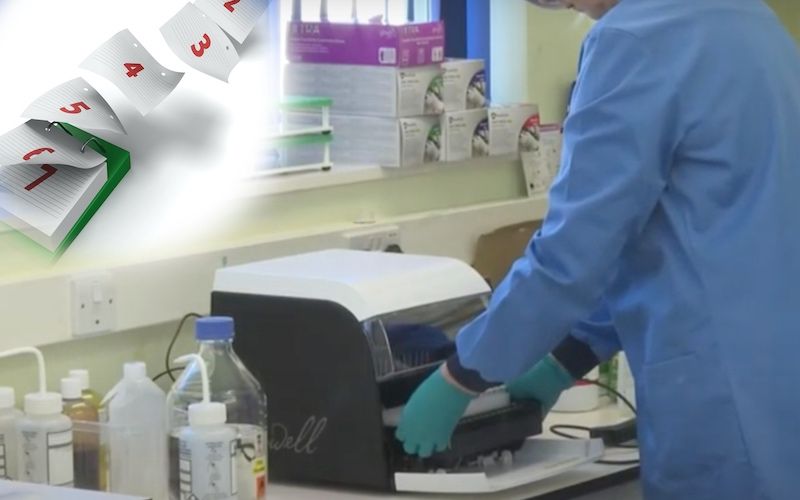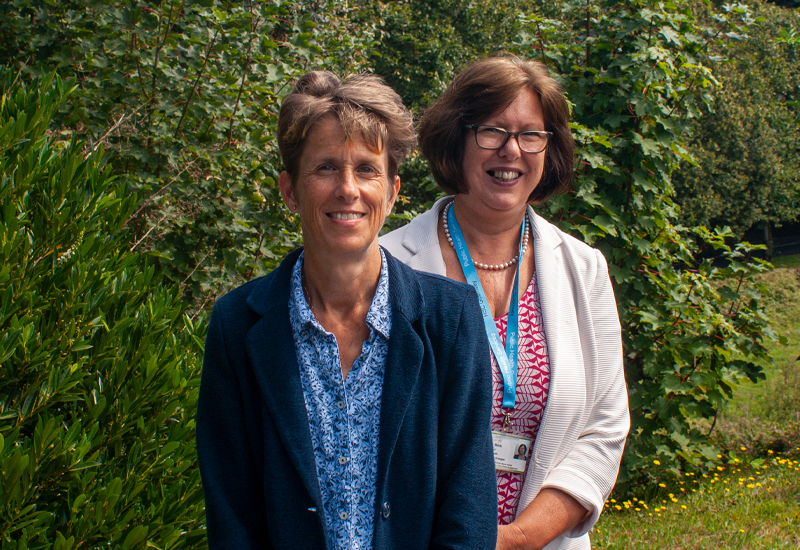


A one-week trial is going to be held to test people arriving in the Bailiwick seven days after they get here, to see if they have Covid-19, so that those who get a negative test result don't have to self-isolate for a fortnight.
The Civil Contingencies Authority has decided that a seven day test for the potentially fatal corona virus could be sufficient to ensure the islands remain Covid-free.
However, a pilot scheme will be run for one week, in July, to test the new arrangements before any changes are made to the current rule which is a mandatory 14-days self-isolation for everyone coming into the Bailiwick, from anywhere - unless they are a critical worker who is exempt under laws brought in during the pandemic.
The pilot scheme will itself have limitations imposed by the CCA, which include an absolute cap of 1,376 people, arriving on a limited and specified number of Condor Ferries and Aurigny services between 5 and 10 July.
Those people will be required to self- isolate for 14-days, with a test for Covid-19 on the seventh day. If a test returns negative, that individual would be released from their self-isolation on the eighth day, or as soon as a negative result becomes available.
Anyone travelling through Guernsey to Alderney or Sark will not be eligible to take part in the pilot at this stage, in line with the decisions of those jurisdictions.

Pictured: People travelling to Sark and Alderney will not be included in the trial scheme for seven days self-isolation.
Anyone who does get a negative test result and is released early from their self-isolation will be monitored through what the CCA is calling ‘passive surveillance’ meaning they will be asked to report any symptoms, no matter how mild. Anyone experiencing any symptoms will be asked to be tested again.
Anyone who is released early from their self-isolation will also be asked to limit their contact with other people as much as possible, including avoiding going to restaurants during this time.
The CCA said this approach "balances the health protection risk of infection with the wider health and wellbeing needs of the population".

Pictured: The Civil Contingencies Authority includes Dr Nicola Brink, Deputy Gavin St Pier, Deputy Heidi Soulsby and Paul Whitfield.
Guernsey's Director of Public Health Dr Nicola Brink has always stated that she has made decisions in relation to the corona virus crisis based on evidence gathered locally, and that available in other jurisdictions.
Speaking recently, Dr Brink said while the incubation period for the coronavirus is understood to be between two and 14 days, data shows more than 80% of cases would be identified after seven days.
Coupled with passive surveillance and the Bailiwick’s track and trace system, the risk of this approach is now felt to be very low. However Dr Brink said a pilot scheme will be essential before seven-day testing is introduced for all passengers.
“We have been led by data throughout our response to the pandemic. Now that we have reached Phase 5 we have been looking at possible modelling of a shorter period of compulsory self-isolation when entering Guernsey. This is particularly important for those who need to travel off-island for treatment or to see loved ones.

Pictured: Deputy Heidi Soulsby and Dr Nicola Brink.
"This 7-day test approach is our preferred option and has been independently peer- reviewed. We’re confident it is the best, lowest-risk option, but we do recognise there is no model that is completely without risk. Equally we know that 14 days of self-isolation is a big ask for some people, with some reporting to me that particularly in the second week of self-isolation, it is affecting their mental wellbeing. We need to balance the risks of the virus with the other health impacts on individuals.
"Managing this pilot in a controlled way is our best solution to test what will work for us. If we do get a case we must not see this as a step backwards, we are very well equipped to respond in this controlled environment."
Deputy Heidi Soulsby said strict border controls are still needed so this is seen as a way of allowing more free movement while protecting the wider community.
“Our borders have been and will continue to be our strongest defence in keeping Covid-19 from returning to our community. But as a result of enhancing our testing capacity, together with having an experienced contact tracing team, we have in place enough protective measures to be confident in going ahead with a pilot for testing on day 7.”
Comments
Comments on this story express the views of the commentator only, not Bailiwick Publishing. We are unable to guarantee the accuracy of any of those comments.